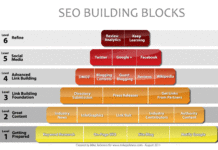This course will take you through the basic to advanced concepts of writing SEO-friendly meta tags for WordPress. These tags are also known as keywords or metadata, and it is one of the most critical aspects that you need to consider while creating your website. In this course, you will learn all about the basic to advanced concepts of writing meta tags for WordPress.
Did you know that how you write your meta tags significantly impacts your search rankings? When you write your meta tags, you can create the foundation for your entire search engine optimization strategy. That means that if you don’t pay attention to these tags, you could be missing out on tons of potential traffic and conversions. We’ll cover the basics of writing SEO-friendly meta tags for WordPress.
The first step in creating a successful online presence is to write quality content for your target audience. This means that you have to optimize your site’s meta tags for search engines. In this article, we’ll show you how to write meta tags for your WordPress site that will help you rank higher in search engines. We’ll also provide some quick tips to help you write meta tags that will help your website rank higher in the search results.

Meta tags are short snippets of text that appear at the top of each web page. They help Google, Bing, and other search engines understand what your page is about. They’re essentially a description of your page, allowing Google and other search engines to determine how relevant your page is to a specific search term.
Meta tags are essential because they help search engines understand what your page is about. You should include at least a few short keywords from the page’s title. You also want to have your brand name or domain.
Meta tags are often overlooked as a part of an SEO strategy. Most of the time, they’re just ignored. But the truth is that they play a significant role in search engine optimization. A reasonable meta tag helps your site appear more relevant to searchers. It’s like having a tagline for your site that appears in search results.
1. Use a keyword-rich tagline
Taglines are typically limited to 50 characters. If you want to maximize the length, use a keyword-rich slogan.
2. Include a sitemap
Google will crawl the pages of your website, but only the pages on your website. If you want your site to appear in search results, you need to provide Google with information about the pages on your site.
Let’s start with what a meta tag is. In a nutshell, meta tags are keywords that you add to the HTML header of your web pages. They are typically used to provide additional information about the page, like its subject matter or a description of its content. Meta tags are a vital part of your website optimization strategy and can make or break your search engine ranking. So, what should you do when creating your meta tags?
1. Keywords
2. Description
3. URL
While the first two items are pretty obvious, the third one is less so.
The way you write your meta tags can have a significant impact on your search rankings. There’s an entire science behind meta tags. Meta tags are short snippets of text that appear on a webpage, usually located near the top of the page. They can contain information about your website, such as what it is about and who runs it. Users who type a search term into a search engine will see results for every site that appears in the list. But when you write meta tags, you can affect how many pages will appear for each term.
• Meta tags appear in a particular part of your web page called the HTML header.
• They’re an essential part of the web because they help search engines understand your site and give it a score.
• Search engines consider meta tags to be essential factors in ranking websites, so it’s vital that they’re accurate and optimized.
Use keywords in your meta title.
Search engines see your meta title as a short description of what your website is about. That means you need to write a compelling title that is specific to your niche and gets people interested. While there is no hard-and-fast rule, the undefined meta title has proven very effective. Some SEOs argue that using the unclear meta title is the best way to get more traffic.
Frequently Asked Questions Meta Tags
Q: What is the difference between using “SEO” in your meta tags and not using it?
A: I use “SEO” in my meta tags because I want search engines to find my blog. I don’t know if search engines have an issue with meta tags or if it’s just something that’s “overlooked,” but I’ve never had any problems with my meta tags.
Q: What should you include in your meta tags?
A: You should use keywords for your title, the first paragraph, and the content in your post.
Q: What should you NOT include in your meta tags?
A: Don’t put any text in your meta tags that are unrelated to your post. Also, don’t put more than two keywords per tag.
Top 3 Myths About Meta Tags
1. Meta tags are necessary for your SEO.
2. A website with no meta tags will not appear on search engine results.
3. Meta tags should be written using HTML codes.
Conclusion
Meta tags are a great way to optimize your page for search engines. These little text snippets allow search engine crawlers to identify and index your content. While you shouldn’t overdo them, meta tags are a great way to help people find your content. They also can help your content appear at the top of search results. However, it’s essential to remember that meta tags aren’t a magic bullet for SEO. Google has many different algorithms that go into ranking pages, and meta tags aren’t one of them.






